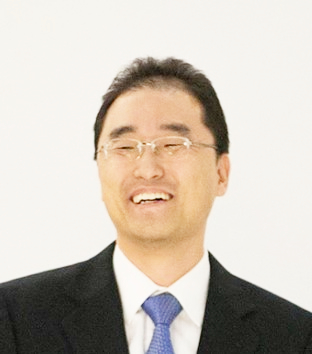The term “Maker” refers to a person who realizes ideas through creative activities. “Maker Space” is a place where Makers can make what they want on the spot with various equipment and there is one in C5. Professor Park Ju-hong (CiTE) is in charge of the Maker courses and Maker Space at POSTECH. The Postech Times interviewed Prof. Park Ju-hong to gain insight into the Maker Space and Maker courses.
Can you briefly explain about the Maker Space at POSTECH and what you are in charge of?
I open a basic Maker course called “Maker Introduction”. The course was motivated by the course of MIT Media Lab, “How to make anything”, which led the lab to come up with plenty of outstanding ideas. Actually, the Department of Creative IT Engineering (CiTE) was aimed to be the Media lab of POSTECH. However, when I was appointed to CiTE, it was far from ideal.
At first, I used my private research funds to equip Maker Space with instruments and founded a Maker course. Later, the former President and executives found out and gave full support to create the best Maker Space in Korea. The current President also promised to construct a Maker Space in CHANGe UP GROUND. I am expecting it to become the finest Maker Space in Asia.
All I do is just provide a Maker environment and an education curriculum, and there are many people behind the scene supporting it.
What was the most memorable experience during the Making activities?
When the Maker course was first opened in 2019, it was an imitation of the class of MIT Media lab. However, I think that it was unsuccessful. In Korea, Making is regarded as useless, which makes it difficult for students to participate in Making courses.
Then, I changed the class into a very basic woodworking class in the 2020 Fall Semester. But I was not assured whether students would prefer it or not. So, I asked students to take a class during the summer break in advance. About eight students came to school and took a class during the summer break, which is most memorable.
Despite the preparations, the Maker class in the Fall semester was conducted online due to COVID-19. As time went by, students lost interest in the class as they just watched Making through videos. In the middle of the fall semester, face-to-face classes were allowed for some courses, and I could have a lesson in the Maker Space with a few students. After students experienced Making first hand, they said, “Now I find the class interesting”, which is also memorable.
What do you think about Maker culture in POSTECH?
Without caution, students can be seriously injured during Making. Therefore, we stress the importance of safety in Maker classes. We want students to learn safety through training, not only by reading books.
Many students think that learning is conducted just by reading books through the eyes. However, many parts of learning are conducted through hands.
What universities have to do is nurture people who produce knowledge, and its precondition is people who can think by themselves. They should be able to constantly raise questions, which is called “tinkering”. Students’ attitudes can be changed from passive to active through Maker classes, and that is why Maker classes are important.
At university, students have to learn tacit knowledge, which can only be acquired through experience. All I can tell you is to take the class and make. Even finding out that “I am not suitable for Making” can be a lesson. It is important to learn how to acquire knowledge more quickly and deeply through Making.



